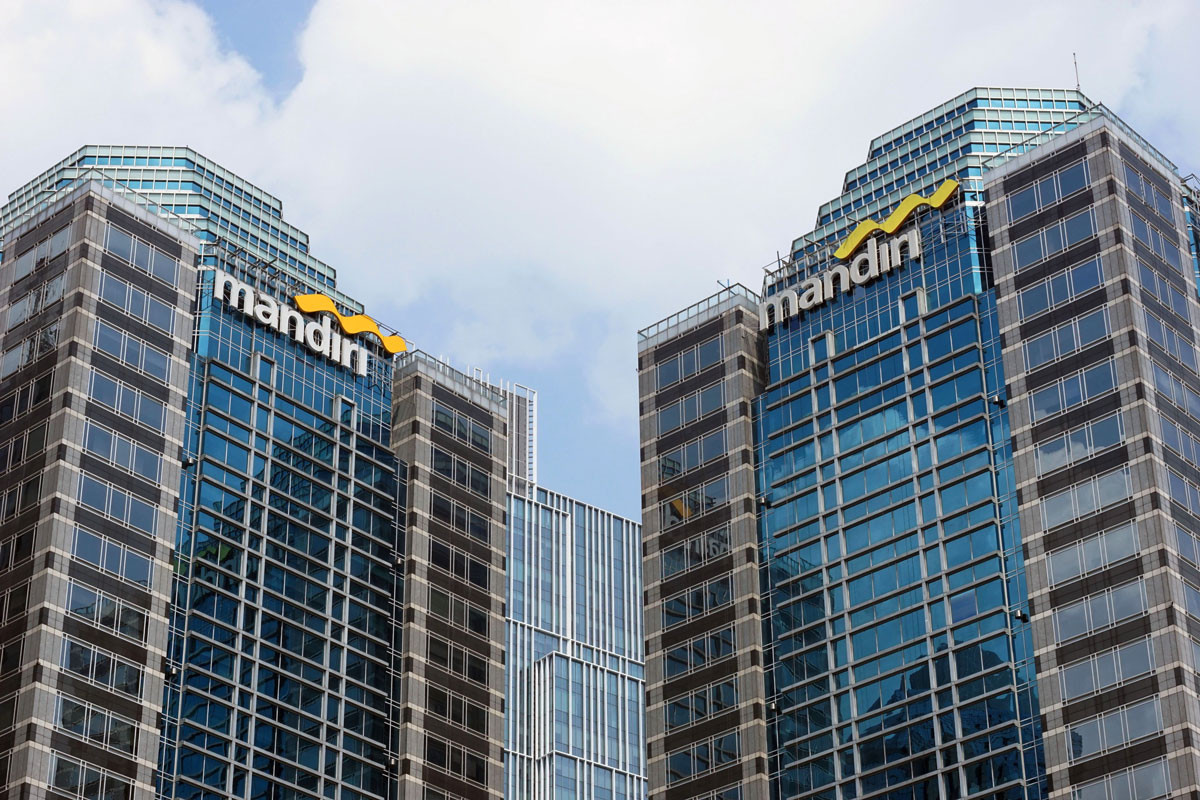Popular Reads
Top Results
Can't find what you're looking for?
View all search resultsPopular Reads
Top Results
Can't find what you're looking for?
View all search resultsBank Mandiri to benefit from sharia bank merger: S&P
The move will combine Bank Syariah Mandiri (BSM), BNI Syariah (BNIS) and publicly listed BRI Syariah (BRIS) to form the country’s biggest sharia bank.
Change text size
Gift Premium Articles
to Anyone
S
tate-owned Bank Mandiri is expected to benefit the most from a merger of state-owned Islamic banks, in which it will hold a majority stake, according to international rating agency Standard and Poor's (S&P) Global Ratings.
The move will combine Bank Syariah Mandiri (BSM), BNI Syariah (BNIS) and publicly listed BRI Syariah (BRIS) to form the country’s biggest sharia bank.
According to the banks’ joint statement on Wednesday, Bank Mandiri will hold the majority 51.2 percent shares of BRIS, the only surviving entity of the merger, considering BSM will contribute over half of the merged entity’s assets.
“We expect the merger to be positive for Bank Mandiri’s business profile,” S&P stated in a bulletin note published on Oct. 15. “The effect on the other two banks [BRI and BNI] will be broadly neutral, given the relatively small contribution of sharia assets and their smaller stakes in the merged entity.”
S&P added that the merger would reinforce Bank Mandiri’s dominant market position while boosting its performance. Bank Mandiri is currently Indonesia’s second-largest bank by asset value.
“[The merger will] help diversify its revenue profile and customer base, [as] the merged entity can leverage on the wide reach of the three banks and will be well-positioned to grow, considering Indonesia’s large Muslim population,” the note reads.
Read also: State-owned banks form biggest sharia bank in subsidiaries merger
Associated revenue and cost synergies could also lift Bank Mandiri’s profitability over the medium term, S&P said. However, it reiterated that the success of the merger would depend on the smooth integration of systems and processes.
Bank Mandiri experienced a 23.9 percent annual decrease in net profit to Rp 10.2 trillion (US$694.2 million) in the first half of the year on the back of slowing economic activity during the health crisis. Loan disbursement grew just 4.38 percent year-on-year (yoy) to Rp 871.6 trillion as of June, lower than just over 14 percent growth recorded in the first quarter.
Meanwhile, despite having the world’s largest Muslim population, the Indonesian sharia finance industry’s market share only makes up 9.68 percent of the country’s financial industry. The low penetration leaves ample room for growth for sharia banks.
Following the merger, which is expected to be completed by February 2021, the sharia bank would have a total asset value of Rp 214.6 trillion, pacing in at number seven or eight as Indonesia’s biggest bank by assets.
The merged entity’s category would automatically be upgraded to BUKU III as the merger would push the sharia bank’s core capital to Rp 20.4 trillion. BUKU III category includes banks with a core capital between Rp 5 trillion and Rp 30 trillion.
The merger, however, will dilute Bank Rakyat Indonesia’s (BRI) ownership in BRIS to only 17 percent from 73 percent and BRI’s pension fund to 2 percent from 8.53 percent. Public ownership of BRIS following the merger will also be diluted to 4.4 percent from the current 18.47 percent.
Bank Negara Indonesia (BNI) is expected to have 25 percent ownership of BRIS.
However, Moody’s Investors Service said in a note on Monday that the Islamic banks were individually small and they lacked the economies of scale that their conventional peers enjoyed. Therefore, they are less profitable than their conventional counterparts.
“Islamic banks are less profitable than conventional banks as they are less cost-efficient and rely more on costlier time deposits for funding,” said Moody’s.
But it noted that the Islamic banking asset quality had improved in recent years. The country’s Islamic banks’ non-performing financing (NPF) ratio improved to 3.31 percent in July, far better than 2017’s figure of 4.77 percent.
Nevertheless, deterioration in asset quality would show when the Financial Services Authority (OJK) lifted relaxation on debt restructuring, which has recently been extended by another year to March 2022.
Bank Mandiri’s shares, traded at the Indonesia Stock Exchange (IDX) under the ticker code BMRI, was up by 1.38 percent to Rp 5,525 apiece at 11.04 a.m. on Friday. The share has lost 28.34 percent of its value since the beginning of the year.










